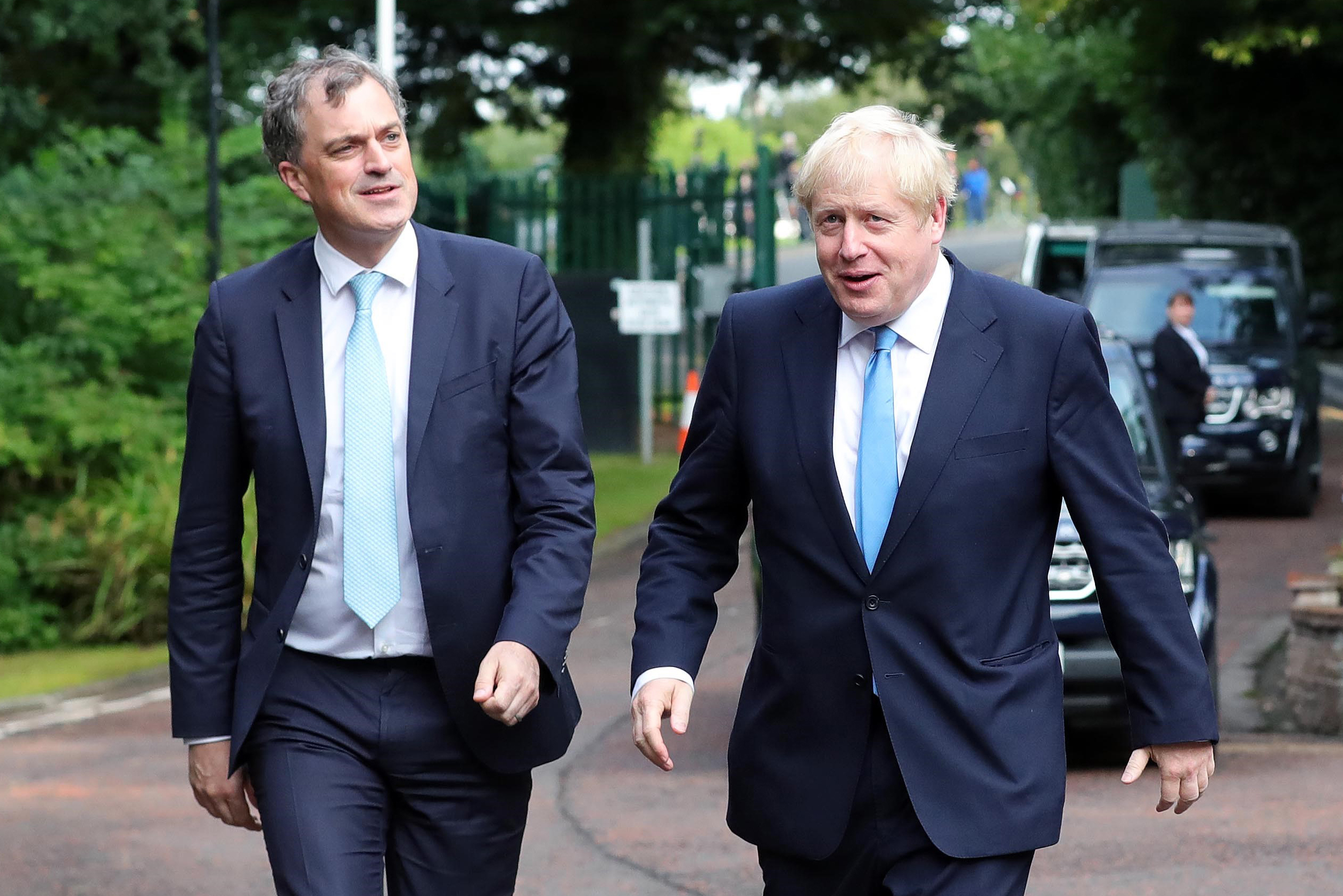
Much has been and will be written about what the special advisers Boris Johnson and his Cabinet have chosen to appoint mean for the direction of their government. But just as significant as any new hire made by a minister this week is one that hasn’t happened.
Julian Smith, the new Northern Ireland secretary, will not be retaining Jonathan Caine, the most senior of Karen Bradley’s three spads. At any other department, that decision wouldn’t really merit serious reflection. Spads are personal appointments whose employment expires with the end of their minister’s term in office. Only occasionally do they stay on if the ministerial guard changes.
Caine was one of those rare exceptions. He was first appointed as a Northern Ireland Office spad in 1991. Of the eight Tory Secretaries of State there have been since he joined the Conservative Research Department as a graduate in 1987, he has advised seven of them in some capacity: Tom King, Peter Brooke, Patrick Mayhew, Owen Paterson, Theresa Villiers, James Brokenshire, and Bradley.
Smith is the eighth, and will be the first since Brooke not to have Caine – elevated to the Lords by David Cameron in 2016 – as a spad. It is no exaggeration to say that it is as big and consequential a call he could have made in his first week in office. It was certainly as significant as his decision to wade into the row over the removal – or not – of a portrait of a Queen from the NIO’s Stormont headquarters. So profound is Caine’s influence that some in Westminster jokingly refer to him as the “real Northern Ireland secretary”. I recall asking one MP for their thoughts on Theresa May’s appointment of Bradley in January 2018. “It doesn’t actually matter,” they said. “Jonathan Caine will still be running the department.”
So what does his enforced departure tell us? Nationalists will hope it means the new regime will prove more amenable to close cooperation with Dublin than those of his predecessors; unionists are already expressing anxieties that it could mean the opposite. Beyond the vague and familiar statements of aspiration on restoring devolution, we know little of Smith’s priorities. Yet his decision not to re-appoint Caine, as his two predecessors dutifully did, suggests Boris Johnson’s government could be preparing for a serious departure from the May line on Northern Ireland.
Taken together with the appointment of the outspoken Johnny Mercer as minister for veterans, it could well mean the shift in tone – and policy – Boris Johnson has promised on Troubles legacy prosecutions: Caine has been heavily involved in shaping the policy that Tory MPs like Mercer have chosen, not entirely fairly, to characterise as a “witch hunt” against former servicemen.
But it is at the most basic level that the absence of Caine will have the greatest impact. Johnson’s Brexit policy, embrace of unionism and reliance on the DUP for a parliamentary majority will force his government to confront some of the most fundamental questions about Northern Ireland: not only about how it is governed, but by and for whom. It is now much harder for anyone to predict how Smith will rise to the challenge.





